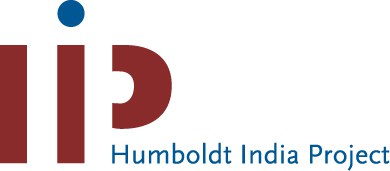The Evolution and Implementation of India´s Municipial Solid Waste Management Agenda over the Past Three Decades - The Example of Delhi
The continually growing generation of waste and the management of the same pose one of the biggest challenges of cities across the world. Especially emerging economies, like India, that are facing dynamic transformations due to their fast growing economies, which are characterised by rising population, rising (average) incomes, increasing urbanisation levels and growing formation of the middle class, are increasingly challenged by the waste generation. The growing generation of municipal solid waste (MSW) and the management of the same pose an increased challenge especially to urban authorities, as it is the case in Delhi, since lack of finances, skills and knowledge lead to severely constrained infrastructure and capacities of the involved municipalities.
The central objective of this PhD research is to, on the one hand, analyse the Indian solid waste management policies, programmes and initiatives, which were published during the past three decades and to on the other hand look at relevant stakeholders, their alliances and coalitions, to then contrast the derived insights and eventually identify underlying dynamics and the actors who are actual drivers or preventers of change in the context of MSW management on a national level in India and on a city level in Delhi. This research aims to create a better understanding of the power-relations and political processes behind decision-makings and about drivers of change in solid waste management when looking at the example of Delhi over the past 30 years.
At the centre of the overarching argument lies the assumption that the developments of India’s SWM in the last 30 years reveal major gaps between the policy and the implementation level, the impact of which is very much visible in India’s capital Delhi. In this time period, the actors’ landscape in Delhi’s solid waste management sector has evolved, new alliances have been formed, while the actors of the informal sector still remain rather unrecognised despite their fundamental relevance for the city of Delhi. A combination of lack of understanding of waste flows and quantities, lack of recognition of the informal sector, lack of accountability and failure of political participatory decision-making processes creates the need for a better understanding of exactly these dynamics and power-relations between the involved stakeholders.
The research at hand attempts to move between two poles, where on one end, waste, as something excessive and expandable, is a management challenge for Delhi’s municipalities and on the other end waste, as something productive and profitable, is an economic opportunity for the urban poor of the informal sector as well as for the formal private sector actors.
Katharina Paterok studierte von 2005 bis 2008 Südasienstudien am Südasien-Institut SAI der Ruprecht-Karls-Universität in Heidelberg. Der Studienschwerpunkt lag im Bereich der Politischen Wisschenschaft Südasiens und hier insbesondere auf der politischen Entwicklung im Indien der Gegenwart. Mit einer Arbeit zur Klimapolitik Indiens schloss sie den Bachelor-Studiengang ab. Von 2008 bis 2011 absolvierte sie an der Humboldt-Universität in Berlin den Master-Studiengang Moderne Süd- und Südostasien-Studien. Wieder lag ihr Schwerpunkt vor allem im Bereich Politische Wissenschaften und außerdem im Bereich der Biopolitik mit dem Fokus auf Indien. Von 2009 bis 2010 erfolgte während zwei Semestern eine lokale Spezialisierung an der Jawaharlal Nehru Universität in Neu-Delhi. Währenddessen und während weiterer längerer Aufenthalte in Indien hatte sie die Möglichkeit ihre Fach- und Hindikenntnisse zu vertiefen. Im Jahr 2011 beendete sie den Master-Studiengang mit der Arbeit „Power and the Pauper – Being an Indian Citizen. The Example of Delhi`s Informal Waste Economy“. Diese Arbeit bildet die Basis für das im Mai 2011 begonnene Dissertationsprojekt am Lehrstuhl für Kultur und Gesellschaft Südasiens an der Humboldt-Universität Berlin.




